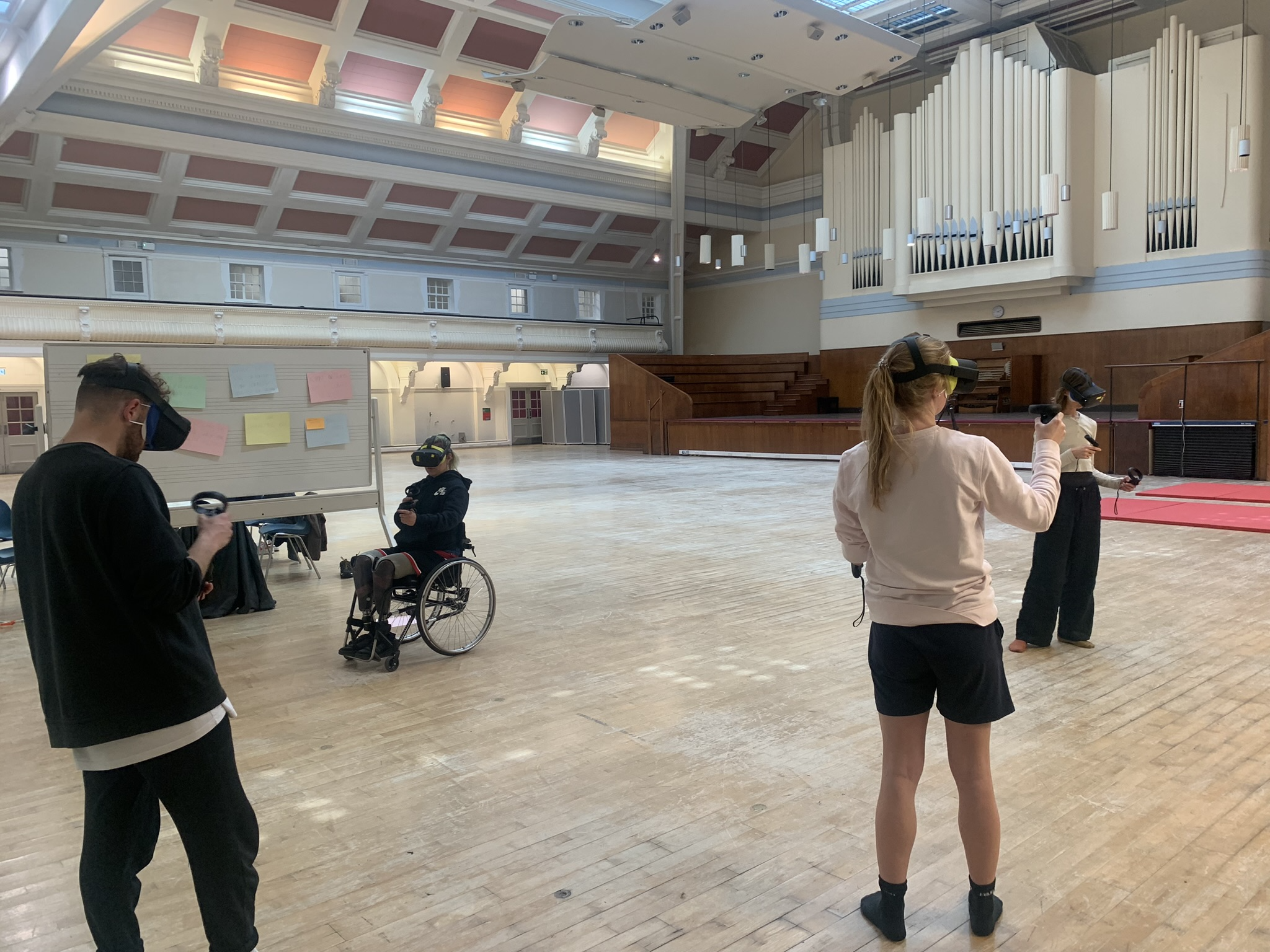Location-based VR means experiencing visual content and other stimuli with a VR headset in a designated space, like a purposely kitted out room in a venue, that is not your own home. Participants can interact with each other and the environment around them — unlike home-based virtual reality. It intends to give participants the space to move, engage, and sometimes affect the content they are experiencing.
VR technology and experiences have mostly been designed without the input and collaboration of Disabled people and we recognise the technology in its current form is inaccessible to many by design. This residency is for those who identify as Disabled (including D/deaf and neurodivergent). No prior experience or knowledge about VR is required.
"This work to forefront Disabled people's experiences in the design of VR is much needed to make VR experiences more accessible. I am excited to see what ideas and transformations come out of the residencies."
These Micro-Residencies are part of a collaborative research and development (CR&D) project called STREAM, which is a partnership between UWE, Marshmallow Laser Feast and All Seeing Eye supported by Digital Catapult. The aim is to investigate and navigate what accessible location-based virtual reality (VR) could look like.
We will award up to eight people £1,000 for a series of critical co-creation workshops working with VR demos, spread over three months. You will work with a Research Fellow Clarice Hilton and an Access Producer with access to the Pervasive Media Studio and its facilities within the Watershed.
Eligibility criteria
- You identify as Disabled (including D/deaf and neurodivergent)
- You are available for all workshop dates as listed in the brief
- You live in the West of England region
The application process:
Step 1
Read the brief and if eligible submit an Expression of Interest, which is a short form with one open question (why you are interested), contact details, eligibility tick boxes and to ensure you are able to make all the dates for the workshops and meetings. This is to make the selection process as quick as possible and to reduce the unpaid labour of applying.
Step 2
We will randomly (and anonymously) select eight eligible submissions using shuffled numbered tickets.
Step 3
Selected applicants will be notified and we will invite you for an induction discussion and organise access provision and contract via Watershed. If you decide not to participate at this stage we will randomly select another applicant.
You can read more about our thinking behind the random selection process via Watershed’s website.
How to apply
Find out everything you need to know about the opportunity, the application process and the timeline: Micro-Fellowships brief
For large print: Micro-Fellowships brief Word doc
Apply via the Expression of Interest form.
Closing date for applications: Monday 11 September 10.00 a.m.
Image credit: Clarice Hilton
